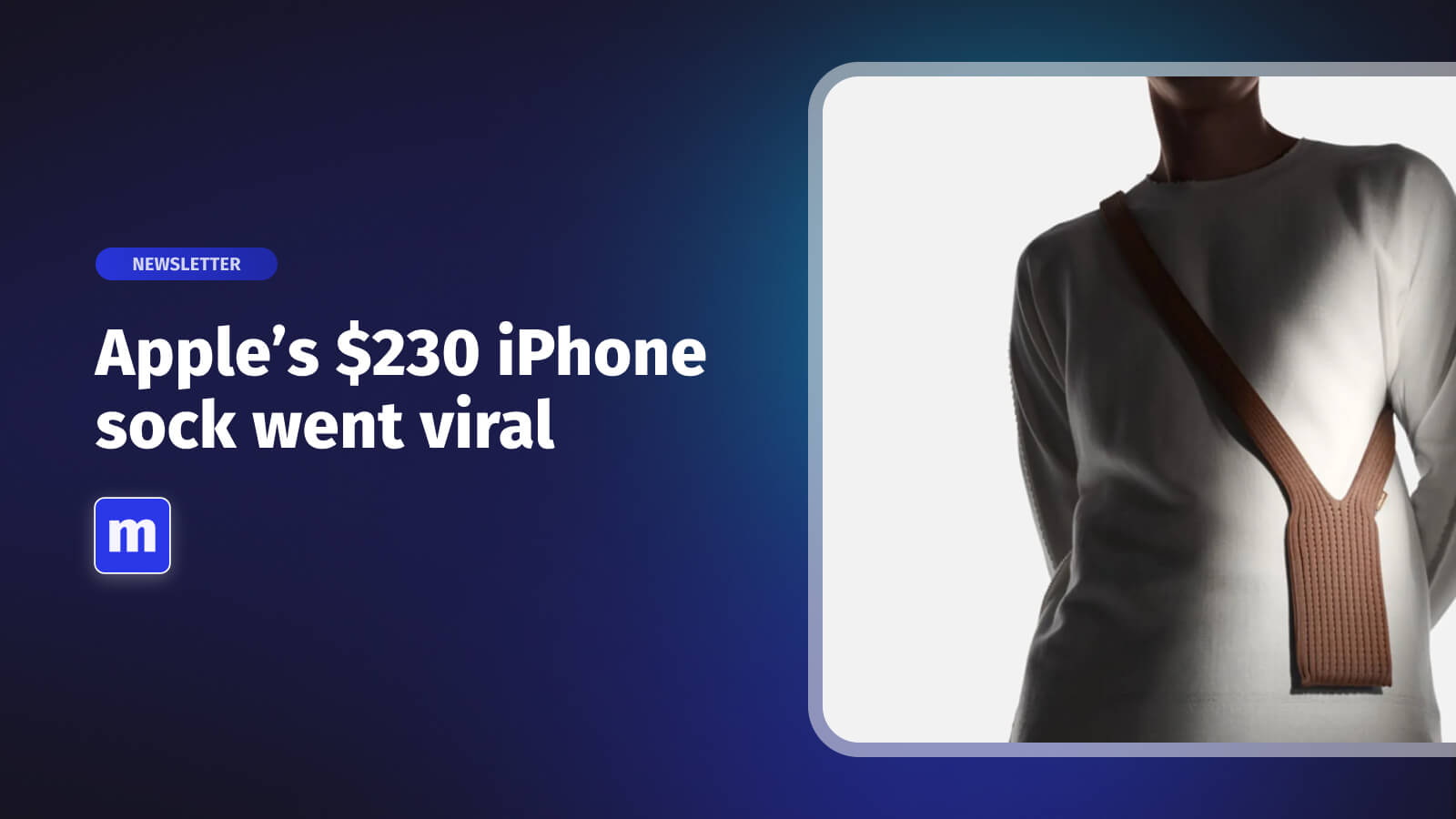
In today's competitive ecommerce landscape, social proof has emerged as a vital element for building trust and boosting sales. For Shopify store owners, harnessing the power of social proof is more crucial than ever. As consumers increasingly rely on the experiences and opinions of others, the influence of social proof continues to expand. This article explores the future of social proof on Shopify, highlighting emerging trends such as user-generated content (UGC), influencer marketing, AI-driven automation, and the innovative concept of conversational UGC, championed by Moast.
The Evolution of Social Proof on Shopify
Social proof has come a long way from its traditional roots in word-of-mouth recommendations and printed testimonials. In the early days of ecommerce, simple reviews and star ratings were sufficient to influence buying decisions. However, as digital landscapes evolved, so did the forms and impact of social proof.
Traditional Forms of Social Proof:
- Word-of-Mouth: The earliest form of social proof, where personal recommendations played a crucial role in purchasing decisions.
- Printed Testimonials: Businesses showcased customer testimonials in brochures and advertisements to build credibility.
Transition to Digital:
- Online Reviews: The rise of platforms like Yelp, TripAdvisor, and Amazon introduced the era of online reviews, where consumers could easily share their experiences and rate products.
- Social Media: Social networks became a powerful tool for social proof, allowing users to publicly endorse brands and products through likes, shares, and comments.
The digital transformation of social proof has not only broadened its reach but also increased its impact. Modern consumers are more likely to trust peer recommendations and user-generated content over traditional advertising. This shift has prompted ecommerce brands, especially on platforms like Shopify, to innovate and integrate various forms of social proof to enhance customer trust and drive sales.
Ps. while you're on the topic of social proof, check out our guide on 101 Examples of the Best E-Commerce Social Proof.
The Role of UGC in Modern Social Proof
User-generated content (UGC) has become a cornerstone of modern social proof, offering a level of authenticity and engagement that traditional marketing methods often lack. UGC includes any form of content—reviews, photos, videos, testimonials—created by customers rather than the brand itself. For Shopify stores, UGC provides several key benefits:
1. Authenticity and Trust:
- UGC adds a layer of authenticity as it comes directly from real customers. Potential buyers are more likely to trust and relate to content created by their peers.
- Seeing real customers using and enjoying products builds trust and reduces the perceived risk of purchase.
2. Engagement and Community Building:
- Encouraging customers to create and share content fosters a sense of community and loyalty. Customers feel valued and connected to the brand.
- Engaging with UGC, such as commenting on or sharing customer posts, further strengthens these relationships.
3. SEO Benefits:
- Fresh, user-generated content can improve search engine rankings. Customer reviews and testimonials often contain keywords naturally, enhancing SEO efforts.
- Regularly updated UGC signals to search engines that the site is active and relevant.

4. Cost-Effective Marketing:
- UGC is a cost-effective way to generate content. Instead of investing heavily in professional photo shoots or ad campaigns, brands can leverage the creativity of their customers.
- Running UGC campaigns, like photo contests or hashtag challenges, can yield a wealth of content without a substantial financial outlay.
Real-World Examples:
- Glossier: This beauty brand has built a strong community by encouraging customers to share their looks using the hashtag #glossier. These authentic photos and testimonials serve as powerful social proof, driving sales and brand loyalty.
- Coca-Cola: Their "Share a Coke" campaign, which invited customers to share photos of personalized Coke bottles, generated massive engagement and countless pieces of UGC.
By integrating UGC into their marketing strategies, Shopify stores can harness the power of authentic, customer-driven content to build trust, engage their audience, and drive sales.
1. Conversational Social Proof: Engaging Customers in Dialogue
Conversational UGC is transforming how Shopify stores engage with customers by facilitating direct, interactive dialogues between shoppers and existing customers. This innovative approach, championed by software like we built at Moast, collects content from customers, creates detailed profiles, and enables potential buyers to interact with them, providing authentic, real-time social proof.
Significance of Conversational UGC:
- Enhanced Trust: Shoppers can ask questions and get answers from real customers, leading to higher trust and confidence in purchasing decisions.
- Personalized Experience: Direct interactions provide personalized insights and recommendations, creating a more tailored shopping experience.
How Moast Facilitates Conversational UGC:
- Content Collection: Moast gathers photos, videos, and reviews from customers, building comprehensive profiles that showcase real experiences.
- Interactive Platform: Moast allows potential buyers to connect with these customers, asking specific questions and receiving genuine responses.

Benefits for Shopify Stores:
- Increased Engagement: Interactive conversations foster a sense of community and involvement, encouraging repeat visits and loyalty.
- Authentic Insights: Potential customers gain valuable, unfiltered insights from actual users, enhancing the credibility of the social proof.
Examples of Successful Implementation:
- Fashion Brands: Shoppers can see how clothing fits on real people, ask about sizing and quality, and get styling tips.
- Tech Products: Customers can inquire about usability, setup, and performance from those who have firsthand experience.
By incorporating conversational UGC, facilitated by Moast, Shopify stores can build deeper, more meaningful connections with their customers, significantly enhancing the impact of social proof.
2. Influencer Marketing and Social Proof
Influencer marketing has rapidly become a critical component of social proof in the ecommerce world. Influencers, with their established credibility and large followings, have the power to sway consumer decisions and boost brand visibility. For Shopify stores, leveraging influencer marketing can be a game-changer in building social proof.
The Impact of Influencers:
- Credibility and Trust: Influencers are seen as trustworthy sources by their followers. When they endorse a product, it carries significant weight, often more than traditional advertisements.
- Wide Reach: Influencers can introduce your brand to a broader audience, driving traffic and potential customers to your Shopify store.
Leveraging Influencer Partnerships:
1. Identifying the Right Influencers:
- Relevance: Choose influencers whose content and audience align with your brand values and target market.
- Engagement: Look for influencers with high engagement rates rather than just a large number of followers. Engagement indicates a loyal and active audience.
2. Building Authentic Relationships:
- Collaborate with influencers who genuinely like your products. Authentic endorsements are more effective and believable.
- Develop long-term partnerships rather than one-off promotions. This creates a consistent and ongoing social proof.
3. Creating Engaging Content:
- Work with influencers to create compelling content, such as product reviews, unboxing videos, and behind-the-scenes looks.
- Encourage influencers to share their personal stories and experiences with your products, making the content relatable and authentic.
Examples of Successful Influencer Campaigns:
- Gymshark: This fitness apparel brand has grown exponentially by partnering with fitness influencers who embody the brand’s values and lifestyle. Their authentic endorsements have driven massive engagement and sales.
- Daniel Wellington: By gifting watches to influencers and encouraging them to share photos with the hashtag #DanielWellington, the brand has built a strong presence on social media, leading to increased visibility and credibility.

By strategically partnering with influencers, Shopify stores can significantly enhance their social proof, reaching new audiences and building deeper trust with potential customers.
3. Social Proof through Real-Time Interaction
Real-time interaction has emerged as a dynamic way to enhance social proof, offering immediate and authentic engagement with potential customers. For Shopify stores, integrating real-time interaction can significantly boost credibility and drive conversions.
The Rise of Live Streaming:
- Live Shopping Events: Live streaming shopping events allow brands to showcase products in real-time, answer questions, and demonstrate features, creating an interactive and engaging shopping experience. Platforms like Instagram Live, Facebook Live, and YouTube Live are popular for hosting these events.
- Instant Engagement: Real-time responses to customer inquiries during live streams build trust and provide immediate social proof as potential buyers see others’ interest and participation.
Examples of Successful Live Interaction:
- Nordstrom: The retailer regularly hosts live shopping events, featuring product demonstrations and live Q&A sessions, which help to build trust and drive sales.
- Amazon Live: Amazon’s live streaming platform allows influencers to host live shopping events, providing real-time social proof and driving product sales.

Tools and Platforms for Shopify Stores:
- Shopify’s Facebook Live Integration: Shopify offers seamless integration with Facebook Live, allowing brands to showcase products and interact with customers directly through their Facebook page.
- Live Shopping Platforms: Tools like CommentSold and Livescale help Shopify stores manage live shopping events, track viewer engagement, and facilitate real-time purchases.
By leveraging real-time interactions, Shopify stores can create a dynamic and engaging shopping experience that enhances social proof and builds stronger customer relationships.
4. AI and Automation in Social Proof
Artificial intelligence (AI) and automation are revolutionizing the way social proof is collected, analyzed, and displayed, offering Shopify stores innovative tools to enhance customer trust and engagement
Transforming Social Proof Collection:
- Automated Review Collection: AI-driven tools can automatically solicit reviews from customers post-purchase, ensuring a steady stream of fresh feedback without manual intervention.
- Sentiment Analysis: AI can analyze customer reviews and comments to gauge overall sentiment, helping brands understand customer perceptions and identify areas for improvement.
Personalized Social Proof:
- Dynamic Recommendations: AI can curate personalized product recommendations based on browsing and purchase history, accompanied by relevant reviews and UGC, enhancing the shopping experience.
- Real-Time Updates: Automated systems can update product pages with the latest reviews and UGC in real-time, ensuring that customers always see the most current social proof.
Examples of AI Tools for Shopify:
- Yotpo: This platform uses AI to collect and analyze reviews, providing insights and automating the display of high-quality UGC.
- Loox: An AI-driven review app for Shopify that encourages photo reviews and automates the process of collecting and showcasing them.
By leveraging AI and automation, Shopify stores can efficiently gather and utilize social proof, creating a more personalized and trustworthy shopping experience.
5. Visual Social Proof: Photos and Videos
Visual content, such as photos and videos, is incredibly powerful in building trust and credibility for Shopify stores. Customers are naturally drawn to visual elements, which can significantly enhance the impact of social proof.
The Power of Visual Content:
- Authenticity: Real customer photos and videos provide genuine representations of products, making it easier for potential buyers to trust and relate to the brand.
- Engagement: Visual content is more engaging than text alone. High-quality images and videos can capture attention and convey messages quickly and effectively.
Strategies for Incorporating Visual Social Proof:
1. Customer Photos:
- Encourage customers to share photos of themselves using your products. Create branded hashtags and run photo contests to gather a diverse collection of images.
- Feature these photos prominently on product pages, creating a gallery of real-life examples.

2. Customer Videos:
- Solicit video reviews and unboxing videos from customers. These provide a dynamic and detailed view of the product, enhancing credibility.
- Use video testimonials to highlight positive customer experiences, adding a personal touch to your social proof.
Examples of Compelling Visual Social Proof:
- Warby Parker: This eyewear brand encourages customers to share photos with their new glasses, creating a sense of community and trust.
- Away: The luggage company uses customer photos and travel stories on their product pages, showcasing real-world usage and satisfaction.
By integrating visual social proof, Shopify stores can create a more engaging and trustworthy shopping experience, leveraging the authenticity and appeal of customer-generated photos and videos.
Integrating Social Proof Across Channels
To effectively integrate social proof across multiple channels, it's important to create a cohesive and unified strategy that maximizes its impact. On social media platforms like Instagram, Facebook, and Twitter, consistently share customer reviews, photos, and UGC. Use branded hashtags to curate content and engage with customers by responding to comments and thanking them for their contributions. This not only reinforces your brand’s credibility but also fosters a sense of community and trust.
In your email marketing campaigns, incorporate customer reviews and testimonials to build trust with your subscribers. Highlight UGC in newsletters, showcasing real customer experiences and promoting a sense of connection. For example, feature a "Customer of the Month" section or include snippets of video testimonials to add a personal touch.
On your Shopify store, ensure that reviews, photos, and videos are prominently displayed on product pages. This creates a seamless transition for customers coming from other channels and reinforces the social proof they’ve seen elsewhere. Utilize tools like Moast to integrate conversational UGC, allowing potential buyers to ask questions and interact with existing customers directly on the store. This interactive element can significantly enhance trust and engagement.
To ensure a unified branding experience, maintain consistent visual and messaging elements across all channels. Cross-promote social proof elements by sharing top Instagram posts in email campaigns or featuring customer reviews on your social media pages. Track performance metrics across channels to understand which types of social proof resonate most with your audience, and adjust your strategy accordingly. By doing so, you can create a seamless and trustworthy customer experience that drives sales and builds long-term loyalty.
Conclusion: Embracing the Future of Social Proof on Shopify
As we look to the future, the importance of social proof for Shopify stores cannot be overstated. From the evolution of traditional testimonials to the dynamic integration of user-generated content (UGC), influencer marketing, and real-time interactions, social proof continues to shape consumer trust and drive sales. Innovations like AI-driven automation and conversational UGC, championed by Moast, are pushing the boundaries of how brands connect with customers.
By integrating social proof across all channels, Shopify stores can create a cohesive, engaging, and trustworthy shopping experience. Staying updated with these emerging trends will ensure that your brand remains competitive and continues to build lasting customer relationships.
Related content
Turn your social content into a revenue channel
Turn your TikToks and Reels into shoppable videos and boost conversions by 3.5x.












